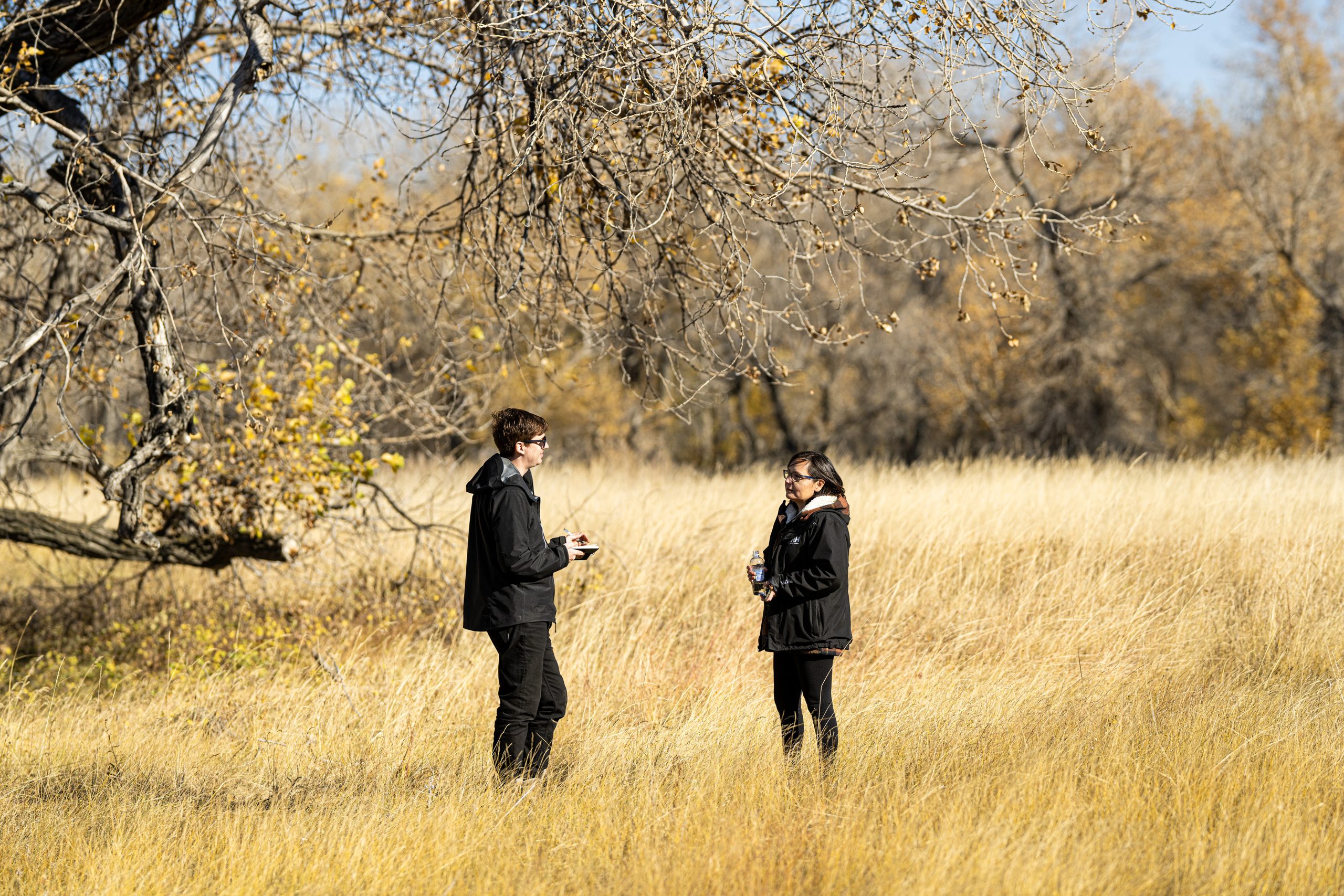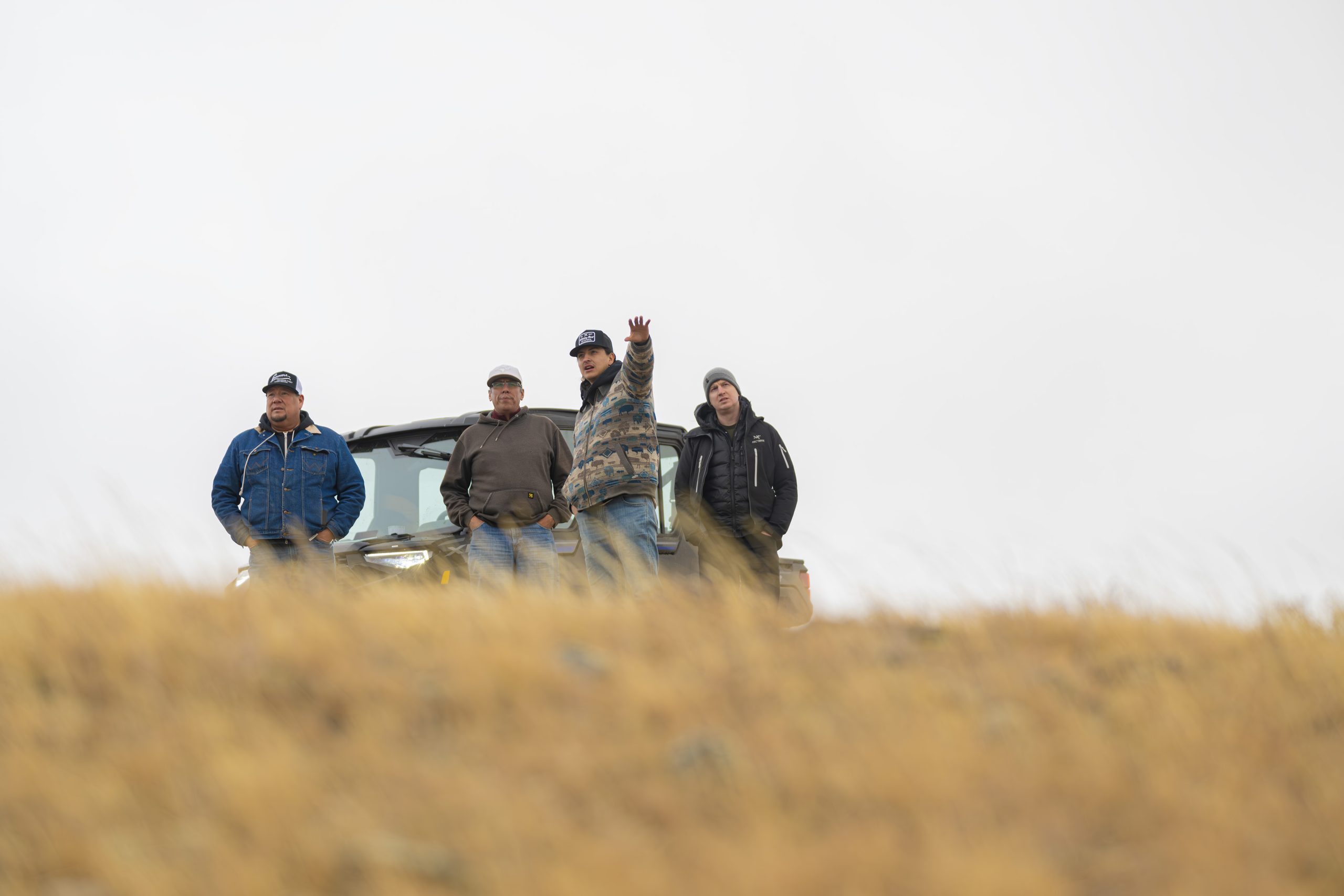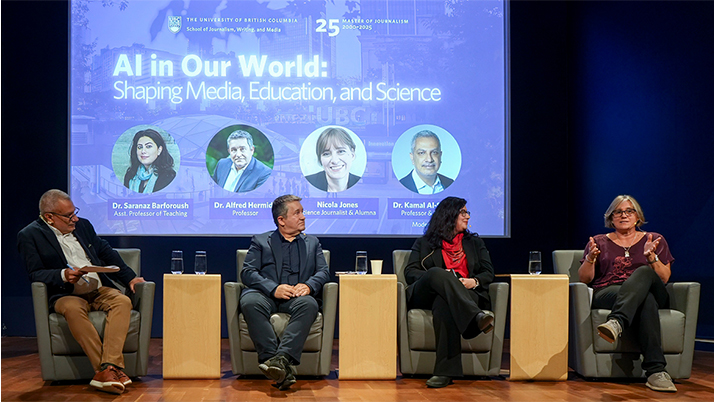JWAM alumni and environmental journalist Jimmy Thomson has just been promoted to the editor-in-chief at The National Observer.
From being out in the field and producing award-winning stories to now leading an award-winning publication, Jimmy has traversed the whole breadth of the industry. We caught up with him to learn more about his professional journey, thoughts on the changing media landscape, and how journalists can best build their brand.


JWAM alumni Jimmy Thomson (l) interviewing a Blackfeet Elder (r)
Can you tell us about your professional journey?
My career in journalism began the same month as I started at what was then called the UBC School of Journalism — the first story I was ever paid to write appeared in BC Business Magazine. It was about Eric Migicovsky who invented and manufactured a Kickstarter-funded watch. I spent the next two years pitching as much as possible, taking any internship opportunities I could, and as a result graduated with bylines in CBC, VICE, The Globe and Mail, The Tyee and more. It allowed me to hit the ground running.
Following that, I went up to the North West Territories to work for CBC North. I loved the North but I didn’t love broadcasting, so after about two years I started working The Narwhal which was a four-person startup news organization at the time. It was a lot of fun and I learned so much working with Emma Gilchrist and Carol Linnitt, not to mention the many other amazing journalists I got to rub elbows with there.
Back on Vancouver Island after a few years in the North, I was recruited to run a small startup of my own: Capital Daily. It was a familiar feeling, a small newsroom trying to punch above its weight. I tried to apply the lessons I’d learned at The Narwhal — namely, don’t try to do everything, just find the stories that you can do better than anyone else. And we did. We broke major news, did national award-winning investigations and made a name for ourselves as a real force in the local media world. Then the tech dude who runs it pulled the plug on our team and we were out of a job. I jumped into freelancing, working for The Narwhal, The Guardian, The Globe and Mail, The Washington Post and a few other places, before this opportunity came up at The National Observer. It seemed like a natural fit for me, and it’s been a great job so far. I love this team.
Are you currently working on any project(s) outside of the editorship?
I have a project I’m working on for The Guardian, which will take me to the Arctic this spring, conditions permitting. Can’t say much more about it!


Jimmy Thomson (far right) working with Blackfeet guardians
What have been some of the biggest takeaways for you?
The journalism world is so much more than standing in front of a camera or writing a newspaper article. Journalists know this, of course, but from the outside it seems like that’s all people are exposed to. In my career, I’ve done both of those things (hated being in front of the camera, for what it’s worth), but I’ve also done photo essays, radio stories, video editing, and podcasts. I have edited and judged other people’s work, taught journalism and writing, written newsletters and experimented with new technologies. I’ve done journalism through social media and a dozen other formats. There are so many ways to do journalism and so many kinds of jobs — despite the constant cuts — that anyone with any set of skills can find a way to do it.
Since graduating, how have you seen the media landscape change over the last decade?
When I graduated, the decline of the journalism business model was already in full swing, but there was a sense of optimism around online independent media — globally, places like VICE or Buzzfeed, were pivoting to hard news and investigations while making good money. For a time it seemed like there was an offramp for all this decline. But that has ground to a halt now. Those mid-level players are mostly gone.
What we’re left with in Canada is very small indie newsrooms, like The National Observer, The Tyee, The Local, or The Narwhal, and very large, declining ones on the other side of this gulf. There are also even smaller players, run through Substack or social media, with one or two people behind them. There’s no middle, and I’m not sure if anything could grow into that space. The support of the Canadian government has been critical in keeping media alive (despite its many flaws, including creating the perception of bias or bought-and-paid-for media) but that’s not going to magically generate a thriving digital media scene again.
“There are so many ways to do journalism and so many kinds of jobs — despite the constant cuts — that anyone with any set of skills can find a way to do it.”
In the current age of information warfare and fake news, what should aspiring journalists focus on?
A few years ago, the common wisdom was that doing work for free on social media to “build your brand” was the way into paid work and a career. I’m sure there’s still some truth to that, but the cons are outweighing the pros. I hate to say it, but just doing good work is probably a better self-marketing tool than a good presence on X or Bluesky. Maybe I’m getting old. But there are a lot of people out there with loud presences who do little or no notable work; why compete with them on their terms when you can just do better work? Editors will notice that. Find your area of expertise — a topic you can write about better than the average person — and develop your beat. For me, that was Arctic issues and environmental science. For someone else reading this, it might be hip hop or women’s hockey.


Jimmy Thomson, Master of Journalism alumni, 2014
What advice can you give to new graduates? How do you think the MJ program can help ?
The MJ program, for me, was a way to spend two years really intensively thinking about how I could make my name in journalism, through pitching and writing all the time, while developing the skills I’d need on the other side. I can’t recommend that enough: pitch while you’re in school. And, if you can, take the opportunity to do at least one killer piece of journalism, through the feature writing class or any other class. You’ll need something to show people what you can do. Don’t think of it as an assignment you need to pass; think of it as your calling card.
And one last thing: treat your colleagues with respect. Help them when they need it, and lean on them for support. These are going to be your future collaborators, bosses, employees — rivals, sure, but for the most part, they’re your key to getting started. At the very least, they’re friends to get a beer with and complain about your profs.
What are your passions outside of your work?
I love to ski, to ride my bike, to take my dog for long walks by the ocean. And I’m getting married in the fall!
“The MJ program ... was a way to spend two years really intensively thinking about how I could make my name in journalism, through pitching and writing all the time, while developing the skills I'd need on the other side. I can't recommend that enough: pitch while you're in school.”
Relevant resources


